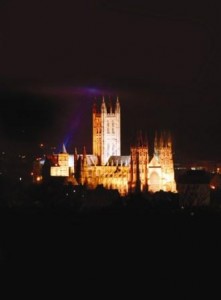The University Symphony Orchestra is industriously rehearsing ahead of this Saturday’s annual Colyer-Fergusson concert in Canterbury Cathedral, and this year unveils a commission by the University Music department from Kent-based composer and Professor of Composition at the Guildhall School of Music and Drama, Matthew King.
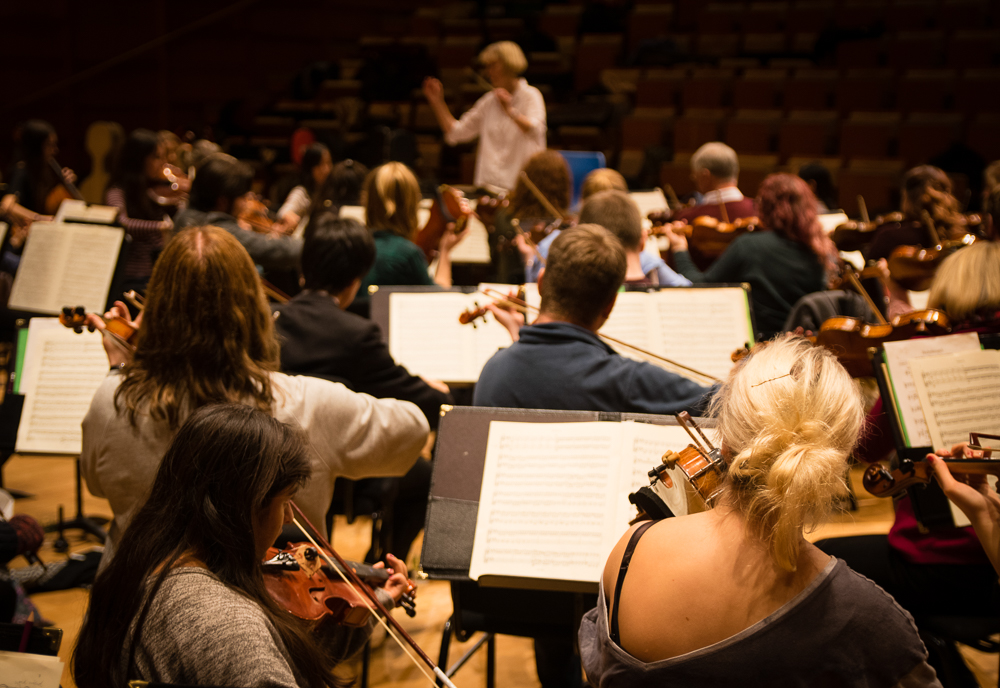
Matthew’s piece will share the Nave with two musical titans; Beethoven’s Eroica Symphony and Haydn’s ‘Nelson Mass;’ I caught up with Matthew ahead of this Saturday’s premiere to ask him about the work and the concepts behind it.
How does your piece relate to (or take on!) the two titans on the programme: Beethoven and Haydn?
I didn’t really want to ‘take them on’. Obviously Beethoven’s Eroica is this massive event at the dawn of Romanticism (a bit like Stravinsky’s Rite of Spring at the start of Modernism) and Haydn’s Nelson Mass is one of a set of pieces which he wrote at the end of his life – it’s only called ‘Nelson Mass’ because Horatio Nelson happened to attend an early performance – but I believe Haydn’s original title was ‘Mass for Troubled Times’ which I have to admit still seems a very relevant title! In any case, both of the ‘titan’ works you mention have an essentially public quality, whereas my piece is very different… and much more intimate in character. Two things connect my piece to Beethoven though: one is the ‘heroic’ key of E flat major (also the key of ‘Nimrod’ in Elgar’s Enigma Variations) and the other is the prominent use of three french horns.
Yours is a highly personal response to the commission request: did this make it easier or harder to write ?
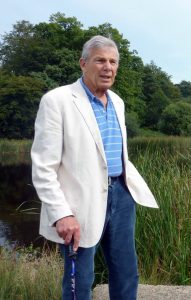
Well easier, in the sense that it was really the only way that I could respond to the idea of ‘heroism’ at the time. But it was written as a tribute to my Dad, who died in March 2017, and that made the process of composing it quite raw emotionally. When you are a small child you tend to view your parents in a heroic way, and in fact Dad had some of the right attributes: he was very tall and good-looking and also very kind. As you get older you realise your parents are human beings with their own foibles, but in Dad’s case his essential kindness always shone through. He ran a special school and, when he died, there were many lovely tributes written about him by young people he’d helped over the years. I guess I wanted my piece to be a kind of pre-verbal tribute, at some kind of deep emotional level. I don’t mean it’s a great emotional splurge – simply that it tries to get to grips with mourning and loss and reflection in quite a measured way.
‘Hero’ can be a very tricky term: how did you deal with it ? I’m thinking it can easily date, or the sense that one man’s hero is often another’s villain…
Yes. I suppose the old idea of heroism as associated with political power, or military strength or whatever, is rather problematic nowadays. I guess there’s a vestige of that old notion of ‘hero’ in the way we view someone like Winston Churchill, or public figures like Martin Luther King or Emmeline Pankhurst: people who prevailed against evil and injustice on a huge scale. I’m also interested in ‘quiet heroism’ – the many unnoticed acts of kindness and generosity that go on all the time. Even in the recent snowy weather there were all sorts of reports of really marvellous acts of quiet heroism from people who certainly didn’t stop to think whether they were being heroic or not. In fact perhaps one definition of heroism might be ‘selfless acts of generosity undertaken by people who have no idea that what they are being is heroic!’
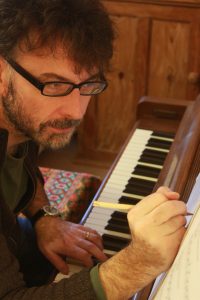
Did the fact that it’s being performed in the Cathedral have any influence or effect on the piece ?
Yes, actually it did. I’ve written for that space a few times. Back in the 1990s I wrote a very big community opera called Jonah which was staged in the Nave, and I learned quite a lot of things from that experience! It’s an awe inspiring building of course, and it has a really huge acoustic which can be difficult to handle, especially in music that has rapid harmonic change. I keep the harmonic pace of my music quite slow, and I tried to create orchestral effects that would blend well with the resonance of the building. I also make use of the space by locating the principal trumpet player up in the organ loft so that his solos come down from on high!
Who are your musical heroes ?
Well they tend to be whoever I’m listening to at the time so it changes from week to week really: recently I’ve been watching some of the great Hitchcock movies with my family and finding renewed admiration for Bernard Herrmann, I’ve been reading all of Jane Austen’s novels and have really been blown away by her marvellous talent. I’ve been listening to Duke Ellington’s Far East Suite and loving it’s raw energy. My daughters like Beyoncé’s Lemonade and I think it’s exciting when (and this is quite rare) musical talent and commercial success are completely compatible!
A friend introduced me last week to the controversial American cultural commentator, Camille Paglia, and I thought she was interesting. I’ve been playing some extraordinary meditative music by Federico Mompou, the Catalan composer on the piano.
Next month it will be a different list!
Matthew’s A Hero Passes will be given its premiere on Saturday 10 March in Canterbury Cathedral by the University Symphony Orchestra, conducted by Susan Wanless; details here.


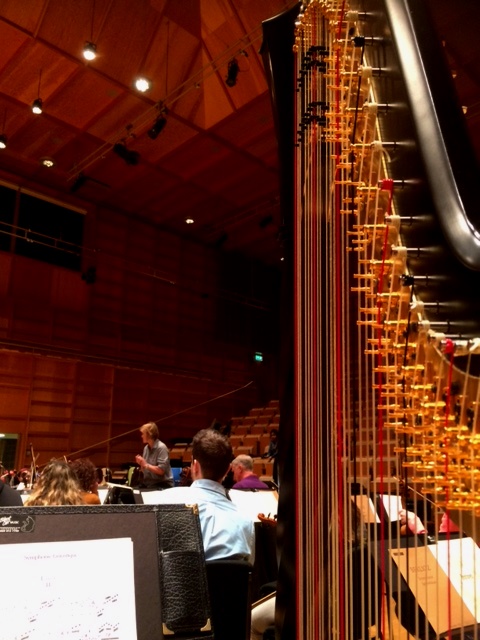
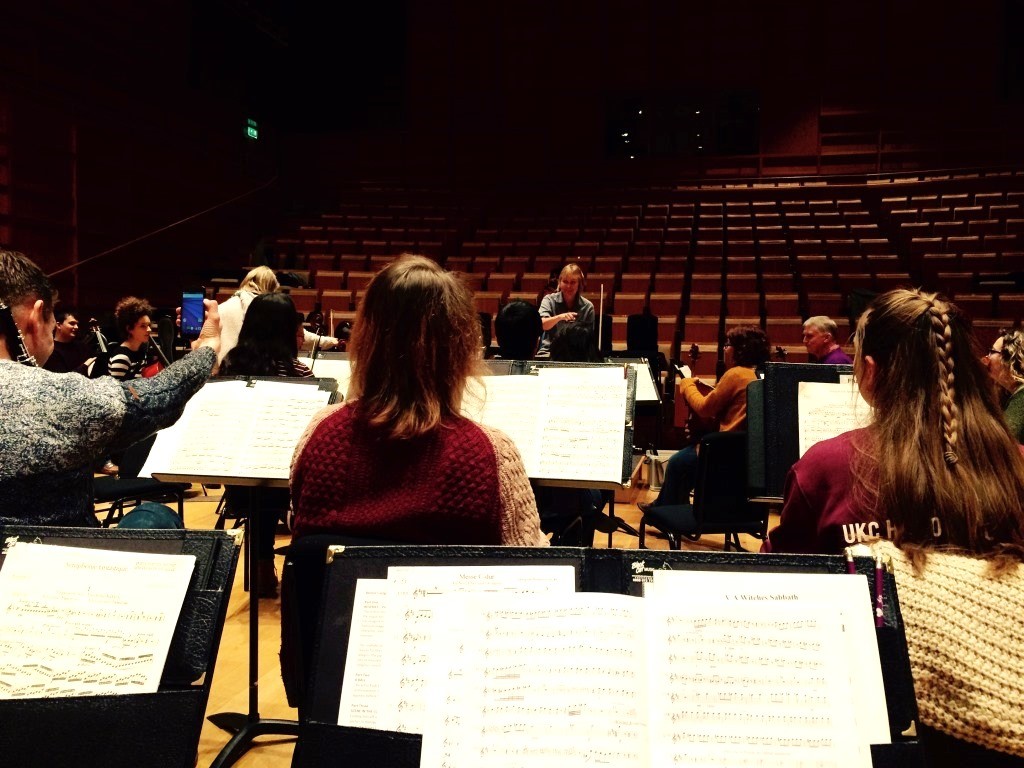

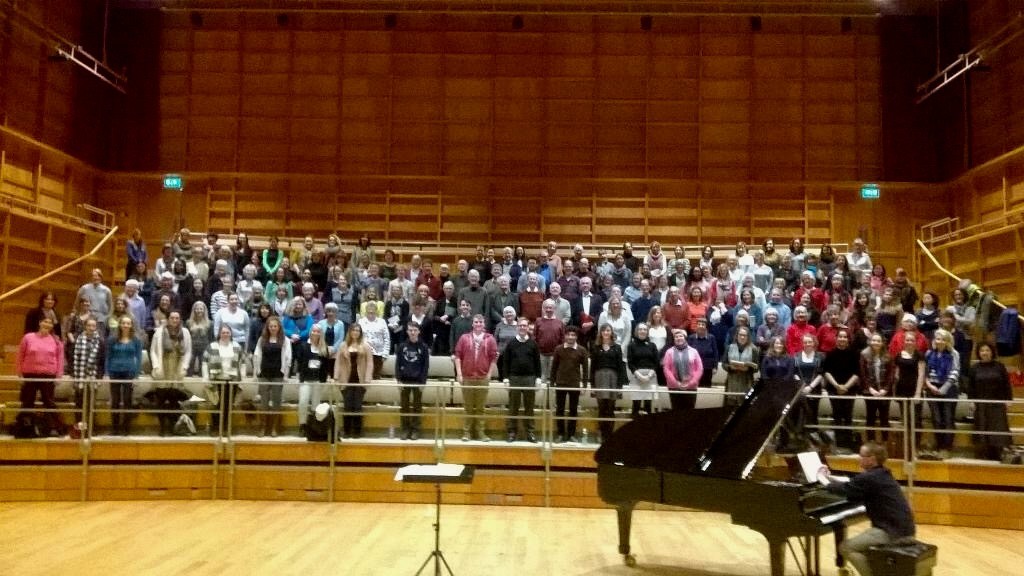
 Join us (and the Verdi Drum) for high drama on March 14th – details and tickets
Join us (and the Verdi Drum) for high drama on March 14th – details and tickets 